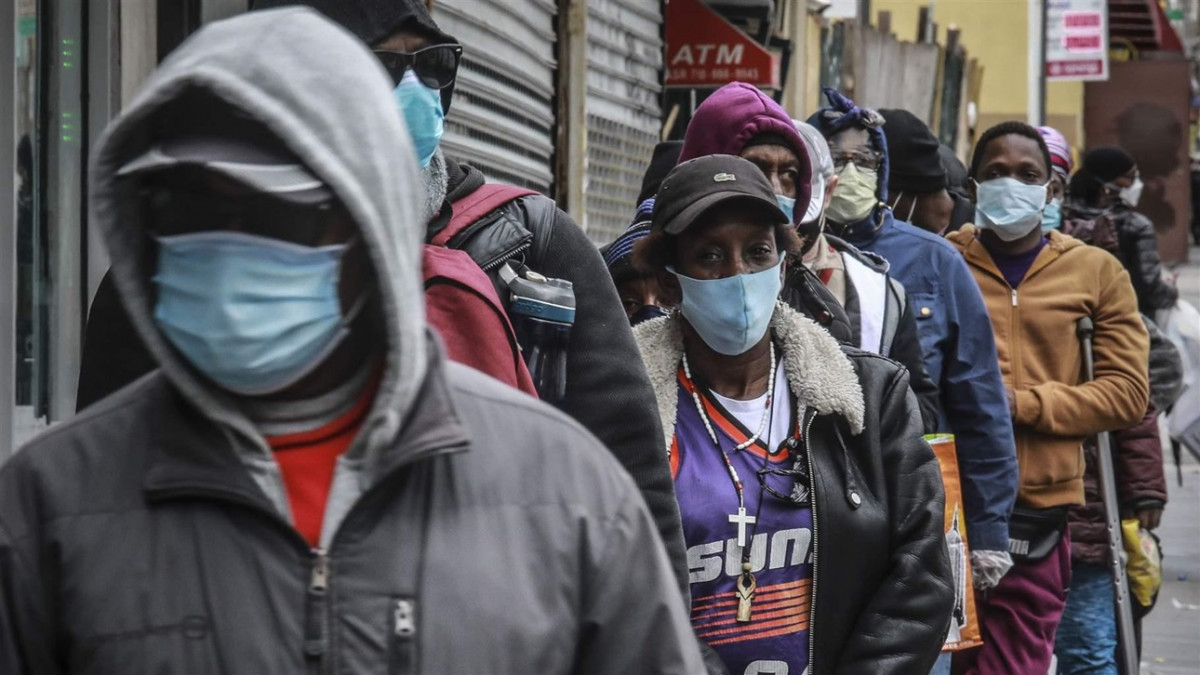By Annika Dean
Throughout the pandemic, COVID-19 has impacted the world. In the United States, the virus has highlighted the systemic inequalities that have been prevalent in America for centuries.
One of the minority groups that has been most affected by the pandemic is African Americans. They are 1.1 times more likely to contract the virus, 2.9 times more likely to be hospitalized, and 2 times as likely to die when compared to white people. Knowing the impact COVID has on the Black community, I got a chance to meet and learn about three African American workers’ lives and their experiences with the virus.
Dr. Mark Johnson is the Chair of the Department of Community and Family Medicine at the Howard University College of Medicine. He said that the medical industry has been dealing with COVID-19 since March 2020.
At first, they did not know what they were dealing with, yet they did know that people needed protection. Many people were getting sick very quickly including Dr. Johnson, who contracted the disease himself. He contracted the virus at the beginning of the pandemic and was out of work for two weeks. He mentioned that it was difficult to get a test at that particular time. Therefore, his COVID diagnosis was not confirmed until June, when he took an antibody test that later proved that he was previously infected.
COVID is an epidemic unlike any that we’ve seen probably since 1914 when there was a worldwide flu epidemic.”
— Dr. Mark Johnson
During the last fifteen months, there has been over 600,000 deaths in the US. In 2020, COVID was the third-largest cause of death- heart disease was number one, and cancer was number two. The virus has been affecting people of color the hardest. Some of the reasons are that people of color are more likely to have jobs where they have to be in close proximity with other people. They are more likely to suffer from higher rates of morbidity illnesses like obesity and diabetes. People of color are also less likely to be vaccinated as well. These factors can affect marginalized communities because of the old saying: “If America gets a cold, black people get pneumonia,” Dr. Johnson said.
Llynecia Odom, a native from Cleveland, Ohio, works at the Veteran’s Administration Hospital (VA) as a Medical Support Associate. Her main job is to transfer the calls from the different wards of the hospital: nurses to doctors, surgical ICUs to CICUs and hospices. One day, she suddenly broke out in hives all over her body causing her to see the doctor. When the doctors were running tests to figure out what caused her hives, the doctors found out she contracted COVID-19.
While the doctors never figured out how she got the hives, she took all of the precautions necessary to stay safe. When Llynecia came home, both she and her husband, Marice, had to quarantine in their room for fourteen days. While they were quarantined, Marice had developed a lot of the characteristics of COVID like shortness of breath, while Llynecia did not have any symptoms. As a result, they ended up taking twenty-one days off of work.
After she was cleared to go back, she became even more cautious. As a result, she began to sanitize everything: the telephone, stapler, her desk, everything within her reach at her job. Now, as the mask mandate has been lifted across the country, she continues to wear a mask while working in the hospital. To prevent something like this from happening in the future, Llynecia said, “I think if we take the type of precautions we [as a country] took after the virus, it would be less likely for many people to get it.” she said. “Sometimes we get careless with washing our hands, and protecting ourselves.”
Finally, I met with Kamaiu Johnson, a pro-golfer from Tallahassee, Florida. His experience with COVID was different compared to the previous workers’ experiences.
During the pandemic, COVID did not affect the game of golf as a whole. After all, golf was one of the few sports that could still be played during the pandemic. With golf, people are able to socially distance themselves and stay six feet apart. Kamaiu believes that golf helped influence us to come together as Americans especially after the events of 2019 and 2020. The game helped make us closer as a country. “Americans helping Americans,” he said.
However, some tournaments were canceled. In October 2020, it was announced that Kamaiu was offered an exemption to play in the 2021 Farmers Open located in San Diego, California.
The week before the tournament was set to begin, Kamaiu tested positive for the virus. He had to stay in his hotel room for fourteen days and ultimately had to withdraw from his first PGA tournament due to the virus. All of his symptoms were mild. The virus also affected his mother and his grandmother who were both in the hospital for about fifteen days. Even though he missed the 2021 Farmers Open, he was able to play in three additional tournaments. This entire experience helped reinforce that we as people have to be safe during a pandemic. Since then, Kamaiu has implemented more sanitary measures into his daily routine such as taking a shower as soon as he gets home and washing his hands. Now, Kamaiu has a full schedule through October. As of now, he plans on continuing to play a lot of golf, travel, and get ready for his upcoming tournaments.
COVID-19 has had a global impact throughout the pandemic. By interviewing these three African-American workers and learning about their experiences after the events of the past eighteen months, I believe I got a clear glimpse into how the virus has affected African Americans’ workers.
